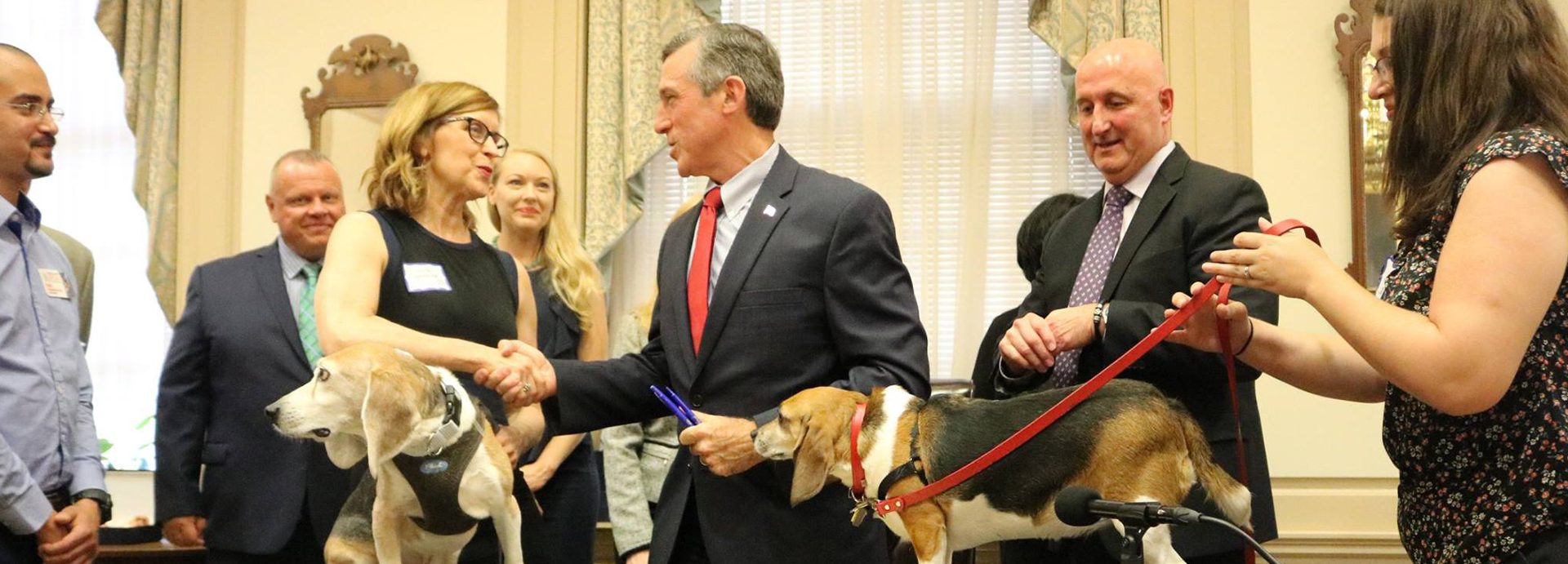A new Delaware law will give research animals a better life after they retire from the laboratories. Gov. John Carney signed a bill Wednesday afternoon that will require all research facilities that receive public funding to put retired dogs and cats up for adoption, rather than euthanizing them.
The bill, which was passed unanimously by the senate in May, will make Delaware the eighth state to enact a so-called “Beagle Freedom” law. The laws, which are nicknamed after one of the most commonly tested on dog breeds, seek to provide new opportunities for research animals who often spend their entire time in the labs caged, with few opportunities to go outside or socialize.
Other states that have passed “Beagle Freedom” laws include Minnesota, California, Illinois, New York, Nevada and California. Several other states — including New Jersey and Massachusetts — have proposed similar legislation.
Senator Jack Walsh, the bill’s primary sponsor, will join the Governor as he signs the bill into law. He described the law as common sense.
“We have healthy animals that research labs don’t want. We have shelters that are willing to care for them. We have families that might want to adopt them. It deifies reason that anyone would choose to euthanize instead of giving them a second lease on life,” Walsh said in a statement made last May.
Gail Thomssen, a proponent of the bill who brought her own retired-research Beagle, George, into the Delaware Senate Chambers to lobby state lawmakers, will also join Carney as he signs the bill. Thomssen is the philanthropy officer of the Rescue+Freedom Project, a non-profit that rescues former lab animals and tells their stories.
“This policy addresses a real deficiency of law and we are so proud to be able to secure homes for animals that have endured so much suffering,” Thomssen said when the bill passed last May. “No longer will these cats and dogs be killed once research is over.
Retired lab animal adoptions will be facilitated either through private placements or through contracted arrangements with local shelters. The bill will also allow researchers to adopt animals they studied in the labs.
“If just one of these animals becomes a pet, all of the work that went into this bill will be worth it,” Walsh said.
Original Article: NBC Philadelphia

